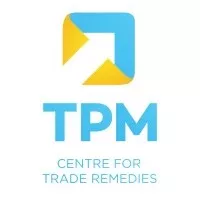The Directorate General of Trade Remedies ("DGTR") recently concluded a mid-term review of anti-dumping duty on imports of Aluminium Alloy Road Wheels from China. The duty was originally imposed in 2015 and was continued in 2019. However, pursuant to the request made by Indian producers, the DGTR examined the need for re-quantification and enhancement of duties imposed earlier.
The mid-term review for re-quantification of duty on imports of Aluminium Alloy Road Wheels from China was particularly interesting. The following aspects of the final findings set it apart from other investigations, including other mid-term reviews, usually conducted by the DGTR:
- The scope of review was restricted to the re-quantification of dumping margin and injury margin, and injury to the domestic industry was not re-examined.
- The review only considered the sampled and non-sampled cooperative exporters of the original investigation within its scope.
- Where the volume of exports by an exporter were low, the DGTR found that the same could not form a basis to examine whether the re-quantification of duty was warranted.
Mid-term reviews in India – Legal provisions
In India, mid-term reviews are governed by the provisions of Rule 23 of the Anti-Dumping Rules, 1995. Such reviews are usually conducted by the Directorate General of Trade Remedies ("DGTR") in cases where there is: (a) a change in circumstances due to which continuation of duty is no longer warranted; (b) a change in circumstances due to which the quantum of duty needs to be modified; (c) a need for clarifying the product scope further, or to modify the product scope to exclude any particular product type. In the past, mid-term reviews were also conducted to cover change in the name of a particular exporter. For instance, in case of PVC Paste/Resin, DGTR conducted a mid-term review to examine applicability of duties to an exporter whose name was changed. However, by virtue of Trade Notice 12/2018, certain name changes can now be considered without the requirement for comprehensive mid-term review.
OM issued allowed re-quantification of duty through mid-term reviews
As part of mid-review investigations, the DGTR has, in the past, always examined the need for continuation of duty, even where the review was initiated based on the request for re-quantification of duty. However, through an office memorandum dated 18th June 2019, it was prescribed that any interested party could seek a review limited to re-quantification of duty or alteration of form of duty, and that the review would entail an examination of key parameters such as dumping margin, injury margin, subsidy margin, and landed price. As a result, the process for conducting a limited mid-term review was introduced, with the intent of reducing the unnecessary burden on the DGTR for conducting a detailed review.
Recent investigation conducted for re-quantification of duties
Pursuant to such memorandum, Indian producers of Aluminium Alloy Road Wheels, namely JJF Castings Limited, Maxion Wheels Aluminium India Private Limited and Steel Strips Wheels Limited filed an application for the initiation of a midterm review investigation, requesting the re-quantification of the quantum of duty. Based on the prima facie evidence provided by the applicants, the DGTR initiated a mid-term review on 1st September 2021. In the original investigation, the DGTR had conducted sampling and determined duty for all cooperative exporters based on the dumping and injury margins of the Dicatsal Group ("Dicastal"). Accordingly, the applicants requested an enhancement of the duty for the cooperative non-sampled exporters in the original investigation in the event the DGTR determines an enhanced duty for Dicastal.
Following a detailed investigation, the DGTR issued its final findings on 30th August 2022. The salient features of the finding were as under -
- Limited scope of review
It was noted that since the investigation was limited to re-quantification and enhancement of anti-dumping duty, issues regarding scope of product and injury were not required to be examined. Further, the DGTR also considered that the scope of review was limited to only the sampled and non-sampled cooperative exporters from the previous investigation, that is, the residual duty determined earlier has not been re-determined.
- Re-quantification of duty for non-sample cooperative exporters
The DGTR also noted that, while Dicastal did not participate in the present review, the non-sampled cooperative exporters that were previously awarded duties based on the margins determined for Dicastal, did indeed participate in the review. [For more details on manner in which duty for non-sampled cooperative exporters is determined, please refer article titled "Margins for non-sampled producers – An unresolved conundrum"] The domestic industry contended that since their duty was tied to that of Dicastal, they could not be allowed an individual margin based on their own data, in view of non-cooperation by Dicastal. The Authority found that such exporters could not be punished for non-cooperation by Dicastal. Thus, they were awarded duties based on the information submitted in their respective response. As regards Dicastal, the group was treated as non-cooperative and awarded higher duties.
- No individual margin determined where quantum of exports was low
Interestingly, where the volume of exports by an exporter was too low, it was determined that such low volumes could not form the basis for determining whether re-quantification of duty was warranted. Therefore, the existing duty on these exporters remained.
Key learnings from the review
Such reviews could pave way for interested parties to address their concerns in future, through seeking change in form of duty or re-quantification of duty. In case the quantum of anti-dumping duty becomes too low, owing to market fluctuations, the domestic producers can seek enhancement thereof. Similarly, exporters and importers can seek reduction of duty or change in form, without establishing the detailed parameters necessary for seeking withdrawal of duty. A limited procedure would allow for a more periodic check to ensure that the anti-dumping duty levied remains effective, while not being punitive to importers due to excess protection.
Originally Published by International Trade Newsletter of the International Law Office
The content of this article is intended to provide a general guide to the subject matter. Specialist advice should be sought about your specific circumstances.



